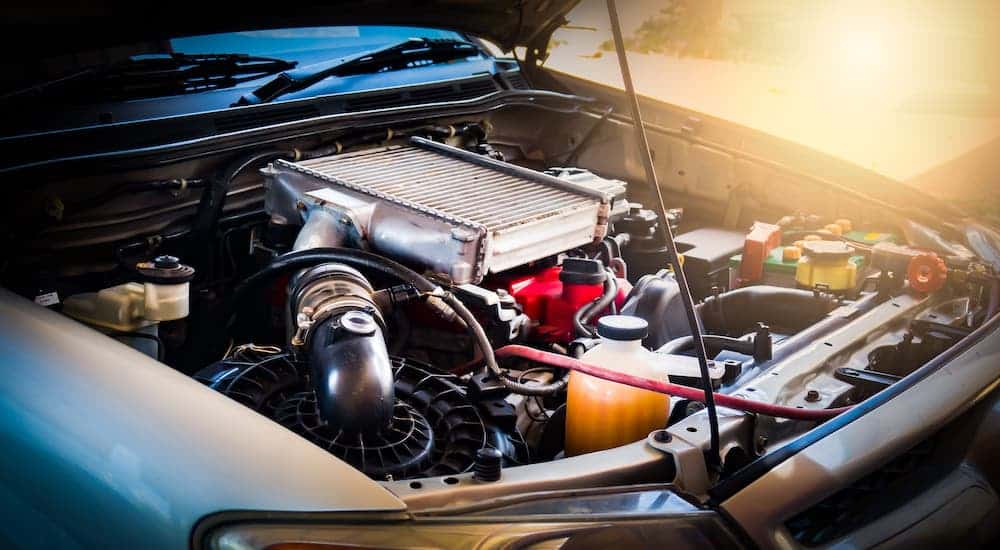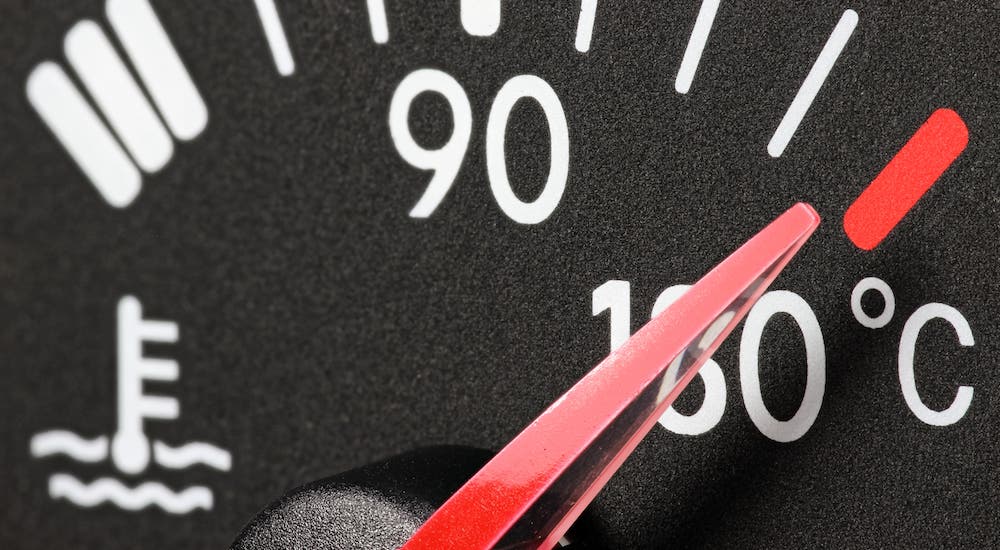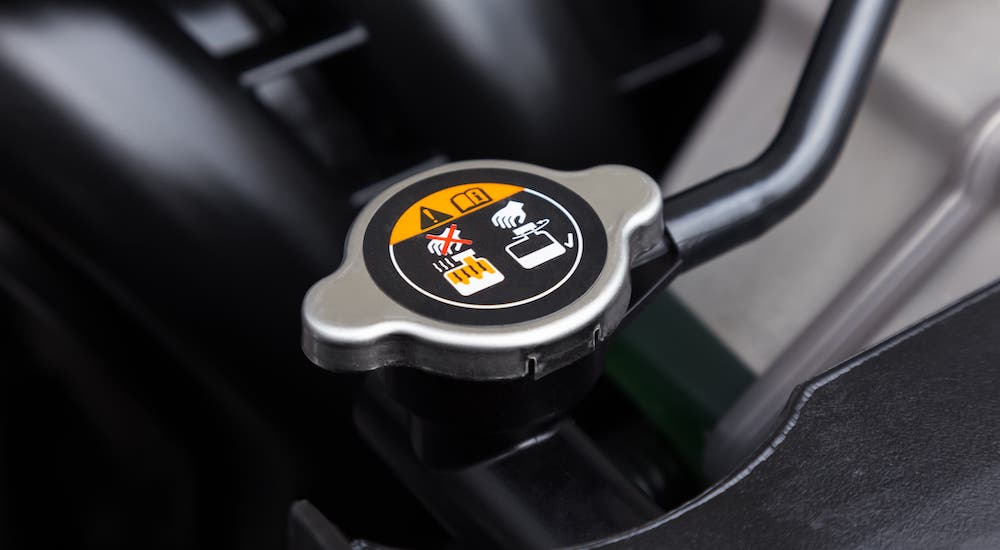Cars, trucks, and SUVs look like peaceful, reliable pieces of machinery that exist to help you get to where you need to go with little fuss. In reality, however, they are powered by explosions that could easily melt them down into a pile of scrap metal if left uncontrolled. Thankfully, your vehicle has a cooling system that helps offset the tremendous heat created when power is generated for your car. But it is important to remember that proper cooling system maintenance is vital to make sure your engine can keep doing its job without destroying itself.
Of course, it’s easy to say this kind of maintenance is essential, but it’s also incredibly easy to forget about. The thing with your engine cooling system is that when it works properly, you don’t even think about it, because it’s all happening behind the scenes, so to speak. And yet, it’s such an essential system that when something does go wrong, the results can be catastrophic if you don’t act quickly and take the right action.
Today, we at Kings Quick Lane in Cincinnati, OH, are going to look at your vehicle’s engine cooling system, how it works, and what you need to do to ensure proper cooling system maintenance and prevent serious issues with your vehicle. It might not be the most exciting thing in the world, but remember this: it all starts with explosions! And this topic is important.
Understanding Your Engine
Before we get into the cooling system for your vehicle’s engine, let’s talk briefly about why you even need it in the first place. A conventional car has an internal combustion engine, which is a fancy way of saying “explosions and fire inside.” This is not figurative language; there are literal explosions and fire inside your vehicle’s engine driving the pistons and creating power for your vehicle. Even the dense, heavy-duty metal used to build your engine can only withstand so much heat, so cooling is necessary to make sure it does not begin to melt and turn into a massive block of useless metal.
Keeping Your Engine Cool
The cooling system for your vehicle is relatively simple and works by transferring heat out of your engine through a cycle of moving liquid. You have liquid in your vehicle’s engine, which is typically a combination of water and coolant, also called antifreeze. This coolant is pumped through a system of hoses into the engine where it heats up – the heat is transferred from your engine into the liquid, thereby reducing the amount of heat in the engine and cooling it off.
The liquid then moves to the radiator, where air flows into your vehicle through the front grille. That air passes over the liquid, and the heat is transferred from the coolant to the air, thereby reducing the heat in the liquid. The coolant then cycles through the system again in a circuit: heat transfers from your engine to the coolant, then from the coolant to air that passes over it. A thermostat monitors the heat of your engine and uses this cooling system as needed to keep your engine at an appropriate temperature.
Proper Cooling System Maintenance – Easy and Quick
Now that you have a general sense of how the whole thing works (there are some more details and a fair number of parts involved, but you get the idea), we can talk a little bit about proper cooling system maintenance for your vehicle. Let’s start with some easy stuff that you can do on a pretty regular basis to make sure everything works properly.
First, the simplest thing you can do is check your engine every month to make sure everything looks good. During this time, you can check your oil level and look at your engine to ensure you don’t see any signs of damage or other problems. You should check your coolant level to ensure you have enough; if you need to, top it off with some water or antifreeze as needed – in general, you should aim for a 50/50 combination of water and coolant. Look at the hoses that are part of the system to check for any signs of damage, wear or visible leaks. This should only take a few minutes and won’t really interfere with your day.
Be on the watch for any signs of leaks that can indicate a bigger problem. When you move your vehicle, make sure you don’t see any stains on the ground from the coolant (or oil, for that matter) where your vehicle was. As you’re driving, if you smell antifreeze or burning antifreeze, that means you have a leak that is causing the antifreeze to hit your engine and boil on it. If you notice the temperature gauge for your engine is high, or the warning light for your engine temperature comes on, these are signs that you have a coolant leak.
If you do have a warning light come on, then you should stop your vehicle as soon as you safely can do so and let it cool down before driving it again. Do not open the radiator or check your fluid if your vehicle is overheating, as this can cause very serious burns. Wait for your car to cool down, then check it and add fluid as needed. If you need to add fluid often, then you have a leak; and if your vehicle continues to overheat, get it towed to a shop for repairs right away.
Proper Cooling System Maintenance – More In-Depth
Speaking of maintenance at a shop, this is a bit more in-depth cooling system maintenance, but it’s very important. As we said, if your vehicle is overheating, then have it taken to a shop for work right away and don’t continue driving it, or you can cause severe damage to your vehicle. If you find a leak, you should also bring your vehicle in for service right away to have your hoses checked and replaced.
Even if you don’t have any leaks or other issues, you still need to have your cooling system flushed and your coolant replaced on a fairly regular basis. As long as you have no other issues, you should have your coolant replaced every couple of years, more or less, depending on how much you drive. Over time, coolant becomes less effective and can potentially damage your engine and the cooling system as it breaks down and gets dirty. So you need to have the system flushed out to get all of the old coolant out, and then have new coolant added to keep your vehicle in great shape.
What Can Go Wrong?
As we said, the most significant danger with not following proper cooling system maintenance is serious damage to your vehicle’s engine. This can be minimal at first, but prolonged overheating can cause enough damage that you can end up needing to replace your engine completely. There’s also the possibility of overheating, resulting in a fire in your engine, which not only damages your vehicle but can also be extremely dangerous. A lot of cooling issues start small and are easy to fix if you act quickly, but if left unchecked, can be very expensive and destructive.
Let Us Help!
Here at Kings Quick Lane in Cincinnati, OH, we are ready to help you with everything you need. Have more questions about cooling system maintenance? Give us a call. Whether you have questions or are looking for routine maintenance and service, or even need more serious repairs, we can help. So call or visit us at Kings Quick Lane today to make sure your car is in the best condition possible.



